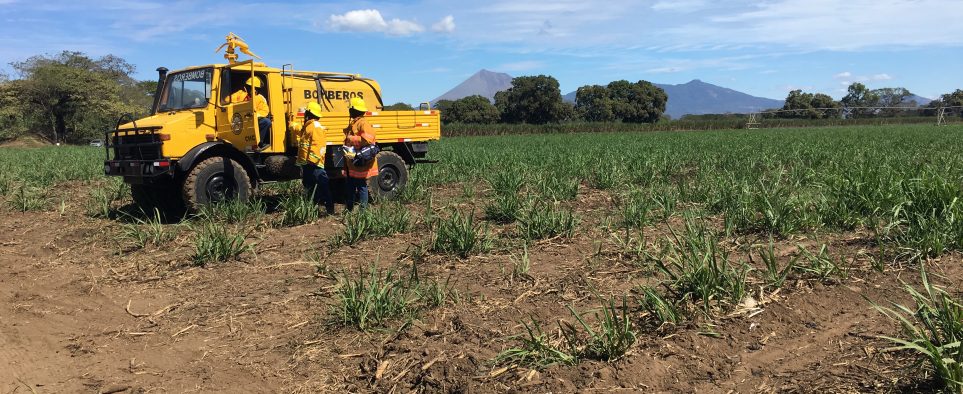The Pellas are the wealthiest family in Nicaragua. They’ve been in sugar since 1890. They own the largest mill, cane farm, and distillery in Nicaragua, selling their Flor de Cana rum in 40 countries. When reporters started tracking deaths of Pellas fieldworkers, bartenders took aim at Flor de Cana. Bars stopped stocking the rum. Servers dumped their bottles in protest. Swiftly, the company revamped its whole production chain.
At the Pellas sugar mill, SER San Antonio, changes happened at all levels. Working hours at the mill dropped from 12 to 8 – working hours in the field dropped from 8 to 4. SER San Antonio took over all harvesting for all its smallholders, to make sure that the cutters harvesting cane for its mill were working in adequate conditions.
They mechanized a large amount of their harvesting operation, but they have retained 170 cutters, who are now fitted with protective gear that includes a 5L water bottle and a shade tent for mandated hourly rests. Their workdays were cut in half, from 8 hours to 5 (with 4 15-minute breaks), and their pay rate per ton of cane was boosted to accommodate the lost hours of income-generation.
These changes were necessary, but they aren’t perfect.
The state criminalizes protests, the wages, though improved, keep people in abject poverty that makes academic success unattainable for workers’ children. The access to healthcare is restricted to public facilities, which are rarely staffed and funded to address complex worker health needs, and employee healthcare access is severed when a worker is let go (i.e. when he gets too sick to work). Families affected by kidney disease are provided “basic basket” food supplies monthly, which is seen as both a major benefit and a mechanism for controlling dissent.
But a remarkable unforeseen consequence of all these changes is that, though they cost money upfront, they’ve benefitted business. Fieldworkers’ efficiency improved 40% when their hours were cut by half, and accidents and injuries decreased when mill hours workers were reduced. The shift to mechanized harvesting has improved overall harvest quality and quantity.
Human rights doesn’t always pay, but there are market benefits to not working your laborers to death. I don’t want to pretend the market totally gets this yet, but BlackRock CEO Larry Fink seems to have. Last week he penned a letter to CEOs. It’s worth a read. Fink thinks that “long-term value creation” requires companies to understand “the societal impact” of their businesses. This includes “structural trends – from slow wage growth to rising automation to climate change.”
In sugar, the “societal impact” is profound and entrenched. We’re talking about a crop with a quintessential slave history. “Long-term value creation” may involve the replacement of cane cutters with machinery, though that carries its own societal impacts.
There is no one-size-fits-all model for making sugar ethical, but there is some remarkable work being done at the field level that, we think, could be standardized. SER San Antonio has made some key changes to working conditions. A mill in the Dominican Republic has gotten its smallholder farmers to provide protective gear to laborers. A mill in South Africa has sold 49% of the company directly to the workers themselves. Malawian and Swazi farmers have “incorporated” themselves, enabling women to be shareholders in places where they’re not allowed to be landholders.
The business and human rights movement has not yet charted these problems or remedies. NomoGaia is conducting research in sugar Belize, Nicaragua, the Dominican Republic, and, coming up, in South Africa and Swaziland. We think a rights-respectful sugar supply chain might be possible, drawing from lessons learned worldwide. It’s scary new territory for us — usually we know precisely who the power-players are, and how reputational risks can alter their decisions. Those relationships are different in sugar.
We think it’s worth the risk to see if we can affect change in this commodity, though — if we can get human rights violations out of sugar, just about anything is possible.


